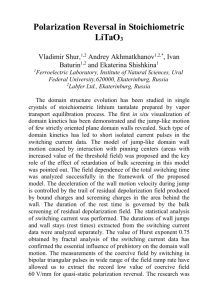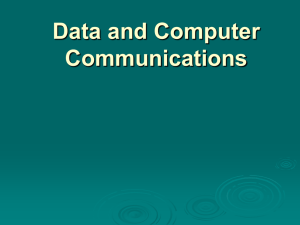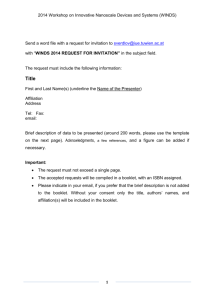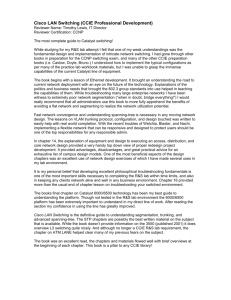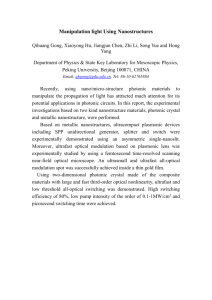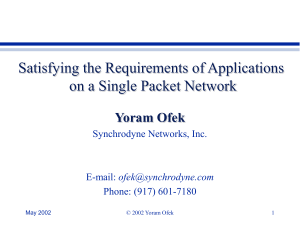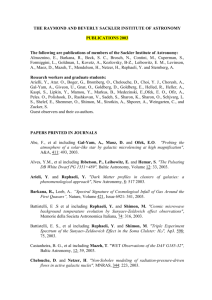Scalable Switching: Design, Analysis and Implementation
advertisement
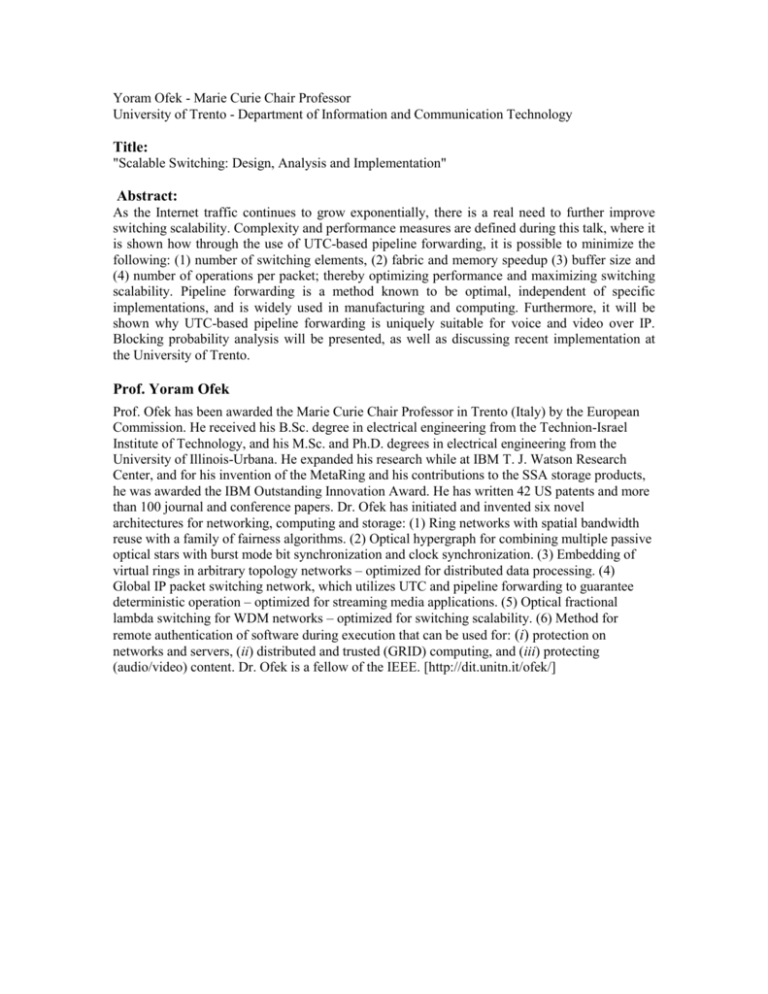
Yoram Ofek - Marie Curie Chair Professor University of Trento - Department of Information and Communication Technology Title: "Scalable Switching: Design, Analysis and Implementation" Abstract: As the Internet traffic continues to grow exponentially, there is a real need to further improve switching scalability. Complexity and performance measures are defined during this talk, where it is shown how through the use of UTC-based pipeline forwarding, it is possible to minimize the following: (1) number of switching elements, (2) fabric and memory speedup (3) buffer size and (4) number of operations per packet; thereby optimizing performance and maximizing switching scalability. Pipeline forwarding is a method known to be optimal, independent of specific implementations, and is widely used in manufacturing and computing. Furthermore, it will be shown why UTC-based pipeline forwarding is uniquely suitable for voice and video over IP. Blocking probability analysis will be presented, as well as discussing recent implementation at the University of Trento. Prof. Yoram Ofek Prof. Ofek has been awarded the Marie Curie Chair Professor in Trento (Italy) by the European Commission. He received his B.Sc. degree in electrical engineering from the Technion-Israel Institute of Technology, and his M.Sc. and Ph.D. degrees in electrical engineering from the University of Illinois-Urbana. He expanded his research while at IBM T. J. Watson Research Center, and for his invention of the MetaRing and his contributions to the SSA storage products, he was awarded the IBM Outstanding Innovation Award. He has written 42 US patents and more than 100 journal and conference papers. Dr. Ofek has initiated and invented six novel architectures for networking, computing and storage: (1) Ring networks with spatial bandwidth reuse with a family of fairness algorithms. (2) Optical hypergraph for combining multiple passive optical stars with burst mode bit synchronization and clock synchronization. (3) Embedding of virtual rings in arbitrary topology networks – optimized for distributed data processing. (4) Global IP packet switching network, which utilizes UTC and pipeline forwarding to guarantee deterministic operation – optimized for streaming media applications. (5) Optical fractional lambda switching for WDM networks – optimized for switching scalability. (6) Method for remote authentication of software during execution that can be used for: (i) protection on networks and servers, (ii) distributed and trusted (GRID) computing, and (iii) protecting (audio/video) content. Dr. Ofek is a fellow of the IEEE. [http://dit.unitn.it/ofek/]
